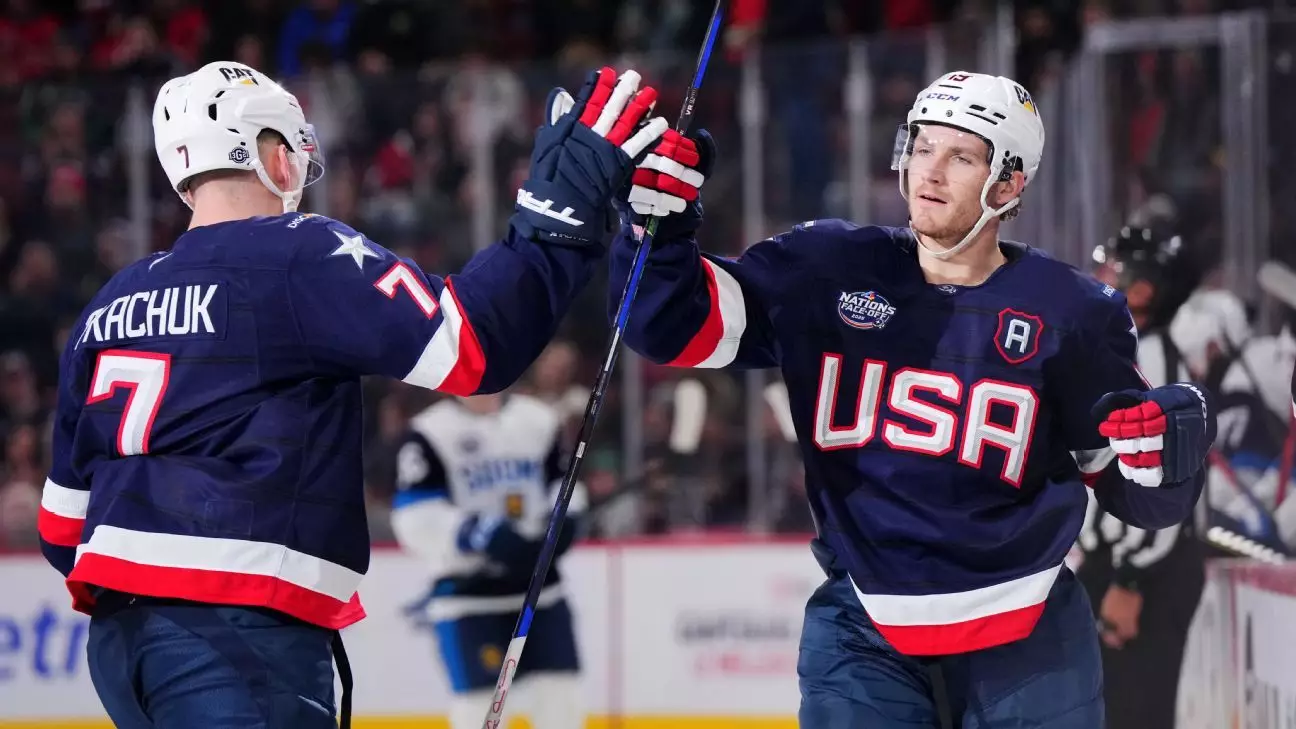The 4 Nations Face-Off championship game between Team USA and Team Canada was more than just a sporting event; it became a stage where the worlds of hockey and politics collided. On the eve of the highly anticipated match, both teams found themselves discussing the implications of a phone call from President Donald Trump. This moment stood out not only for its unexpectedness but also for the larger narrative it created around nationalism and competition in sports. Players from both teams expressed their astonishment at receiving a call from the leader of the free world ahead of such a significant game.
Team USA forward Vincent Trocheck described the call as a “cool experience,” revealing how surreal it felt to have the President express support for their efforts. J.T. Miller, another key musician of the U.S. team, echoed this sentiment, emphasizing how the President taking time out of his busy schedule to motivate the players underscored the importance of their endeavor. Yet, amid the excitement, there were echoes of political undertones, particularly when Trump joked about Canada potentially becoming the “51st state,” which generated mixed reactions from players and fans alike.
The political discourse surrounding the game reflects a broader trend in which sports serve as a microcosm for national identity and rivalry. The rivalry between the United States and Canada, particularly in hockey, is rooted deep within the fabric of both nations, and when intertwined with political sentiments, it intensifies the emotions on display. The atmosphere during the games heightened as national anthems were met with a mix of cheers and jeers, demonstrating how political sentiments can skew even a sporting event.
Canada coach Jon Cooper’s comments reveal the balancing act both teams navigate; the excitement of representing their countries while dealing with the broader implications of political banter. His lighthearted remark about the absurdity of Canada being the “51st state” hints at the complexity of discussing national pride and sportsmanship.
On the ice, the intensity of the match reflects the tension that has brewed between these neighboring rivals. Games were characterized by aggressive play and physical altercations, particularly during their previous matchup, which saw multiple fights within the first ten seconds. This undercurrents of animosity are not simply about hockey; they embody deeper-seated nationalistic pride and competitive spirit.
Furthermore, the fact that the political atmosphere became a focal point leading into this championship game adds layers of significance to the sporting event. As players skated onto the ice, they weren’t just representing their skills or teams; they were also bearers of their nation’s pride in the context of a politically charged environment.
Sporting Competitions as Cultural Reflections
As the players confronted the tension on and off the ice, they ultimately chose to focus on the game itself. The competition became a canvas where national narratives were painted, yet they remained determined to prioritize their roles as athletes. Their commitment to winning, as highlighted by Coach Cooper, became the primary goal, pushing aside personal or political sentiments for the time being.
This narrative encapsulates the duality of sports as both entertainment and an arena where significant cultural dialogues happen. As conflicts and rivalries unfold, they act as a reflection of broader societal issues, with sports often mirroring national sentiments.
The tension in the air during this championship serves as a reminder that while hockey aims to bring joy and competition, it also entwines with the politics that shape the societies players and fans inhabit. The game is not merely about the score on the board; it becomes a symbolic competition that defines national identities and cultural discourse in a unique and compelling way.
The 4 Nations Face-Off encapsulates a rich tapestry of competition filled with pride, rivalry, and political nuance, reminding us that in the heat of the moment, sports can transcend simple games to become something far more profound.


Leave a Reply